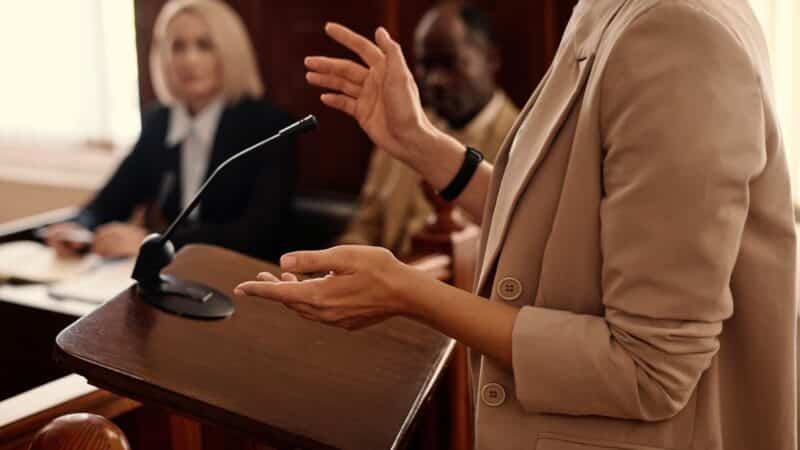Preferred office location:
Please select your nearest office location so we can show you the most relevant information.
Your preferred office location

The ATO levies interest on late payments of tax and particularly unpaid taxes (known as ‘general interest charge’ (GIC)), in much the same way as late credit card payment penalties.

A recent SAT decision highlights the rising influence of community and local government intervention in planning approvals

Kingston Case Update: What the SAT Decision Means for Local Government

Navigating the Process and Legal Implications of Court-Ordered Mediation

The dispute revolved around OMSB’s preparatory works for the decommissioning of Chevron’s offshore gas platforms. In late 2023, OMSB began decommissioning activities, but the Shire claimed these works occurred without appropriate planning approvals.
For property owners, clear documentation is key to avoiding disputes. Need legal advice? Our team is here to help.

The dispute revolved around OMSB’s preparatory works for the decommissioning of Chevron’s offshore gas platforms. In late 2023, OMSB began decommissioning activities, but the Shire claimed these works occurred without appropriate planning approvals.
For property owners, clear documentation is key to avoiding disputes. Need legal advice? Our team is here to help.

What does Labor’s win mean for small and medium-sized enterprises (SMEs) in Western Australia?

Senior Associate Richard Dewar provides an in-depth analysis of the Export Control Amendment (Ending Live Sheep Exports by Sea) Act 2024.

Once made, a promise—such as passing down a family farm—may be enforceable by law.

In a significant employment law decision, the High Court of Australia ruled that employers may be liable for psychiatric injuries caused by poorly managed disciplinary processes. There are a few key areas of note for employers that come from this case, including highlighting the importance of fair and transparent disciplinary procedures.

A name change sparked a legal battle over inheritance.

Important changes to the Family Law Act and how they may affect your family law parenting matter

Balancing strict drug policies with fairness: Key insights from the Sydney Trains v Goodsell case on employee dismissal.

HHG Legal has recently been successful in dealing with prosecutions by the Department of Agriculture and Food, Western Australia on behalf of farmers.

An overview of wind farm agreements for landowners in Western Australia, covering lease terms, compensation models, and key considerations

HHG Legal Group, a leading law firm known for its commitment to excellence, is pleased to announce a significant enhancement to its Employment Law team. This strategic expansion reinforces the firm’s dedication to providing comprehensive legal services to clients across Western Australia.

A Will is an essential tool that ensures that your loved ones are looked after and that your wishes are respected. Entering a new relationship or getting married is an exciting time, but it is also an important time to ensure that your Will is updated.

Making provision for your pets in your Will.

The Importance of Drafting Your Will Upon Marriage Associate, Emma Catterall discusses the legal considerations and best practices of drafting…

High Court changes landscape of arbitrations where claims may involve multiple wrongdoers The High Court recently delivered a landmark ruling…

Special Counsel, Lucy Ferreira discusses the importance of managing digital assets. In today’s digital age, the scope of a person’s…
Senior Associate, Dianne Caruso discusses whether the Court may vary final parenting Orders. Does section 65DAAA differ from the rule…
HHG Legal Group wins again 12 September 2024 HHG Legal Group is delighted to announce that it has been awarded…
The roles of an executor and a trustee, though often held by the same person, have distinct responsibilities in managing a deceased person’s estate.
The Harman undertaking is an implied undertaking made to the Court that any documents produced for the purposes of Court proceedings are not to be used for any ulterior purpose, other than the litigation in which they were produced.
The Criminal Investigation Act 2006 (WA) gives the Western Australian Police powers to investigate, and ask questions of people, in circumstances where they hold a reasonable objective belief that a person has been involved in the commission of a criminal offence.
Key employer takeaways in relation to the right to disconnect:
Take reasonable steps to limit after hours contact with employees;
Engage in consultation with employees to seek an understanding about when after hours contact may be acceptable;
Provide training to supervisors on the right to disconnect; and
Update workplace policies and employment contracts as needed.
There are many different types of stealing offences a person could be criminally charged with by the Western Australian Police.
The Family Violence Programme is available to an accused person who has been formally charged, by the Western Australian Police, with a “family violence” offence. The programme is funded by the Department of Justice and is of no cost to an accused.
While bereavement is not how most people might see themselves coming into equity, the last thing you want to be unsure about when processing the loss of a loved one is how inheriting property works.

Please select your nearest office location so we can show you the most relevant information.